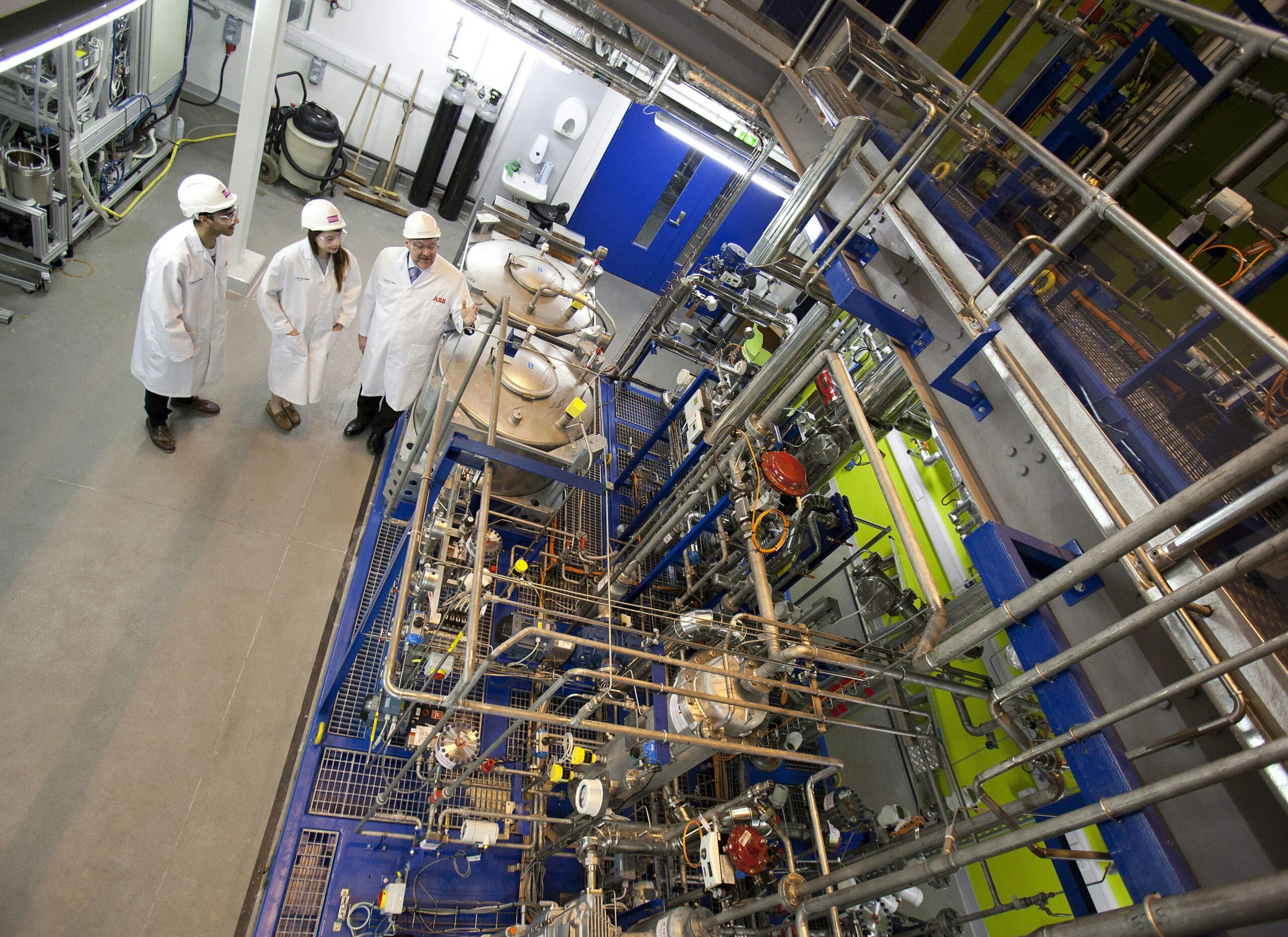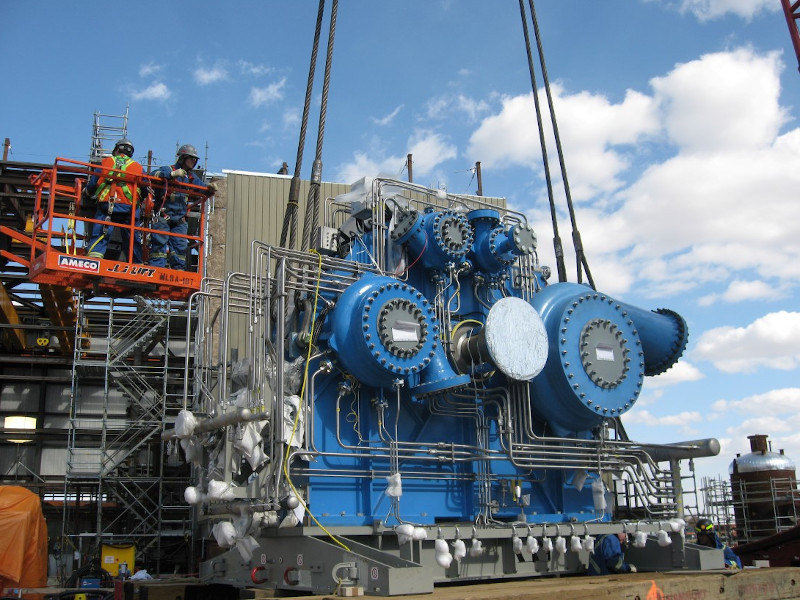
Carbon Capture Revolution: ExxonMobil, FuelCell Energy, and Porthos Spearhead Sustainable Innovation
Published by Todd Bush on December 19, 2023
Amid the escalating global concerns about climate change, ExxonMobil has emerged as a trailblazer, spearheading a transformative initiative at its Rotterdam Manufacturing Complex. Fueled by groundbreaking carbonate fuel cell (CFC) technology from FuelCell Energy and fortified by collaborative partnerships, especially with Porthos, this pilot project signifies a significant step in carbon capture and a collaborative move towards a net-zero future.

CFC Technology: A Pragmatic Shift in Carbon Capture
Central to this ambitious venture is CFC technology, an innovation poised to redefine industrial operations. Going beyond conventional carbon capture methods, CFC technology possesses a dual functionality. According to Geoff Richardson, SVP of Commercial and Business Development for ExxonMobil Low Carbon Solutions, "The real significance of CFC technology lies in its dual functionality. It not only captures CO2 emissions but also generates clean energy and valuable resources like heat and hydrogen, creating a more efficient and cost-effective carbon capture process."
Unlike traditional methods, CFC technology captures CO2 emissions before they disperse into the atmosphere, simultaneously yielding valuable co-products. This dual benefit not only amplifies the overall efficiency of carbon capture but also introduces additional revenue streams, enhancing its commercial viability. The modular design of CFC technology provides unprecedented flexibility, adapting seamlessly to diverse industrial settings. This scalability unlocks immense potential for addressing a spectrum of emission challenges across various sectors.
>>Read more about ExxonMobil here
FuelCell Energy President and Chief Executive Officer Jason Few emphasizes, "FuelCell Energy and ExxonMobil believe that capturing carbon at the source is an efficient way to decarbonize heavy industry. This technology can capture carbon and produce electricity simultaneously, making it a game-changer in the industry."
Rotterdam: A Crucible of Innovation
ExxonMobil's integrated manufacturing site in Rotterdam serves as the epicenter of this groundbreaking project. Co-funded by the European Union under the Emissions Trading System Innovation Fund, the pilot project aims to amass critical data on CFC technology's performance in a real-world industrial environment. It endeavors to tackle potential technical challenges and refine cost models, paving the way for extensive deployment across ExxonMobil's global operations and beyond. However, the journey doesn't conclude here; collaboration remains integral to its success.
Porthos Collaboration Redefining Carbon Capture
ExxonMobil's collaboration with FuelCell Energy, the visionary developer of CFC technology, exemplifies the transformative power of collective action. This partnership gains additional strength from dedicated allies such as Porthos, a significant carbon capture and storage project in the Netherlands. ExxonMobil's participation in the project underscores its steadfast commitment to large-scale implementation, expanding the reach of CFC technology's impact and catalyzing positive change throughout the industry.
This collaborative ethos extends beyond individual projects, weaving a global symphony of progress. Parallel initiatives, like Shell's Quest carbon capture and storage project in Canada and Chevron's Gorgon CO2 sequestration project in Australia, join the collective effort, harmonizing their endeavors to decarbonize industries worldwide. This shared ambition kindles optimism for a future where innovative technologies like CFC play a pivotal role in realizing net-zero goals, orchestrated by a shared purpose and collaborative action.

Porthos Collaboration: A Milestone for Carbon Transport and Storage
Recent developments add another layer to this collaborative effort. Rotterdam companies, including Air Liquide, Air Products, ExxonMobil, and Shell, have signed final contracts with Porthos for the transport and storage of CO2. From 2024, these companies will collectively capture 2.5 million tons of CO2 annually from their installations in Rotterdam. Porthos, a joint venture of EBN, Gasunie, and the Port of Rotterdam Authority, will transport the CO2 to a depleted gas field 20 km off the coast, storing it at a depth of 3 to 4 km under the North Sea seabed.
This marks a significant milestone in the realization of the Porthos carbon capture and storage (CCS) project. Pending government permit approvals, a final investment decision for the project is expected in the Spring of 2022. Construction of the Porthos system (onshore and offshore pipelines, a compressor station, and modification of the offshore platform) is expected to take about two years. During this period, the companies will construct their capture installations, and the first CO2 can then be stored in 2024.
>>Read more about FuelCell Energy here
CCS, as demonstrated by the Porthos project, presents an effective way to curtail CO2 emissions in the short term at relatively low costs. This is particularly crucial in sectors where alternatives for significant short-term impact are limited. Once operational, the Porthos project aims to reduce the CO2 emissions of the industry in Rotterdam by approximately 10 percent.
Over the past two decades, countries like Norway, Canada, and the United States have garnered expertise in developing CCS projects. What sets the Porthos project apart is its ability to connect multiple companies into one network, a unique feature that enhances its importance in achieving climate objectives. Recognizing its significance, the European Union allocated a €102 million subsidy for the project at the beginning of the year.
Beyond Rotterdam: Scalability Sparks a Global Transformation
The lessons gleaned from the Rotterdam pilot and the collaborative effort with Porthos are of immense significance for the trajectory of carbon capture. The triumph of this project could serve as a catalyst for the broader adoption of CFC technology across diverse industries globally. Its modularity and versatility offer substantial scalability, empowering various sectors to implement adaptable solutions tailored to their specific emission challenges. This technological revolution holds the potential to reshape entire industries, transforming them into pillars of sustainability.
Illuminating the Path to Net-Zero
ExxonMobil's breakthrough in carbon capture through CFC technology, coupled with the collaborative efforts with Porthos, signifies a monumental milestone in the journey towards sustainable industry practices. This collaborative endeavor, from the pioneering CFC technology to the collaboration with Porthos, underscores the pivotal role of collective efforts in addressing global environmental challenges. By showcasing the immense potential of innovative technologies like CFC and the collaborative approach with Porthos, this pioneering project stands as a beacon of hope, illuminating a path towards a cleaner, more sustainable future.
This journey towards a net-zero future isn't a solitary endeavor; it's a symphony of collaboration, innovation, and unwavering commitment, with ExxonMobil leading the charge, CFC technology powering the change, and Porthos extending the reach.
>> In Company Spotlight: ExxonMobil
Subscribe to the newsletter
Daily decarbonization data and news delivered to your inbox
Follow the money flow of climate, technology, and energy investments to uncover new opportunities and jobs.
Companies
Latest issues
-
Inside America’s Carbon Capture Reality Check
Inside This Issue ⚡ Duke Energy Florida Goes Live With First 100% Hydrogen System ✈️ Air bp Signs Agreement With Airbus on Flight Services and Fuel Supplies in Europe 🌊 Pairing Reefs and Mangroves...
-
Three Nebraska Plants Prove Ethanol CCS Actually Works
Inside this Issue 🌽 Three Nebraska Plants Prove Ethanol CCS Actually Works ☀️ SunHydrogen and CTF Solar Sign Agreement to Accelerate Hydrogen Panel Manufacturing 🧪 GenH2 Completes Major Milestone:...
-
DOE Doubles Down on $1/kg Clean Hydrogen Goal
Inside This Issue 🎯 Doe Doubles Down on $1/kg Clean Hydrogen Goal 🕳️ Quebec Introduces First Legal Framework for Underground CO2 Storage 🧪 Charbone Announces Its First Hydrogen Supply Hub in the O...
Company Announcements
-
JERA Announces Close of Haynesville Shale Gas Asset in Louisiana
TOKYO and HOUSTON, Feb. 12, 2026 /PRNewswire/ -- JERA Co. Inc., a global energy leader and Japan's largest power generation company, today announced that through its subsidiary JERA Americas Inc., ...
-
Buffalo Biodiesel Inc. (“BBD”), a leading recycler of waste vegetable used cooking oil (WVUCO) and producer of renewable feedstocks, announced that they have officially renewed a Part 364 Waste Tra...
-
Air bp Signs Agreement With Airbus on Flight Services and Fuel Supplies in Europe
Air bp has signed a multi-year contract with Airbus for the supply of conventional aviation fuel, sustainable aviation fuel (SAF), and related services in Germany and Spain. This agreement enables ...
-
BEND, Ore.--Element 1® Corp. (“e1”), an Oregon-based leader in methanol-to-hydrogen generation technology, today announced the signing of a Memorandum of Understanding (MOU) with Aurosi Precision C...
